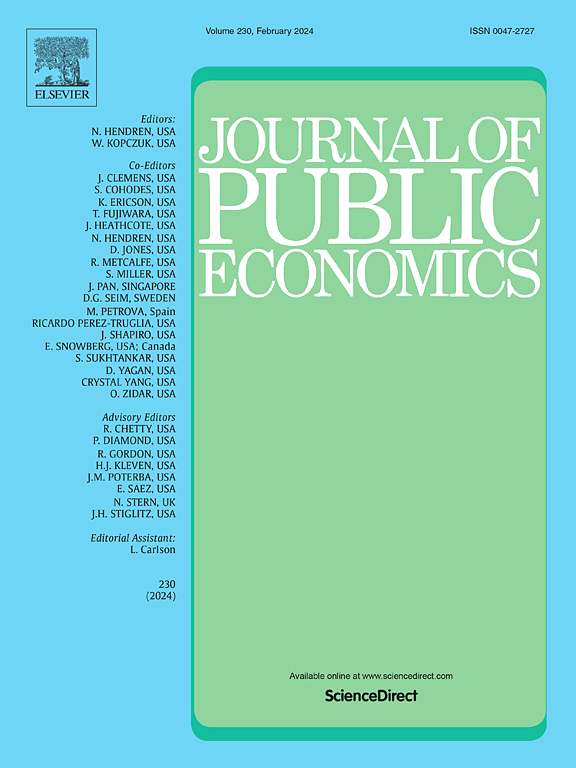How fiscally autonomous are local governments? An empirical test
Abstract
How freely can local jurisdictions change their taxes and spending? I propose an empirical test of the effective degree of municipal fiscal autonomy by studying fiscal adjustments to a permanent exogenous revenue shift. Based on a tax competition model where jurisdictions are partially expenditure constrained, I derive a testable prediction: tax cuts from a small positive revenue shock will be larger (smaller) with higher perceived tax base mobility, if the local policymaker is strongly (weakly) fiscally constrained. I apply this test using a revenue shock generated by a reform in an inter-municipal transfer system within a Swiss canton. tax base mobility is proxied by the availability of zoned land reserves. I find that higher residential land availability is associated with stronger tax rate responses, but I find no statistically significant results for industrial land reserves. In light of the theory, this suggests that the effective degree of fiscal autonomy of local jurisdictions is low. Usual indicators of fiscal decentralization based on public accounts might overestimate the actual autonomy of local governments.

 求助内容:
求助内容: 应助结果提醒方式:
应助结果提醒方式:


